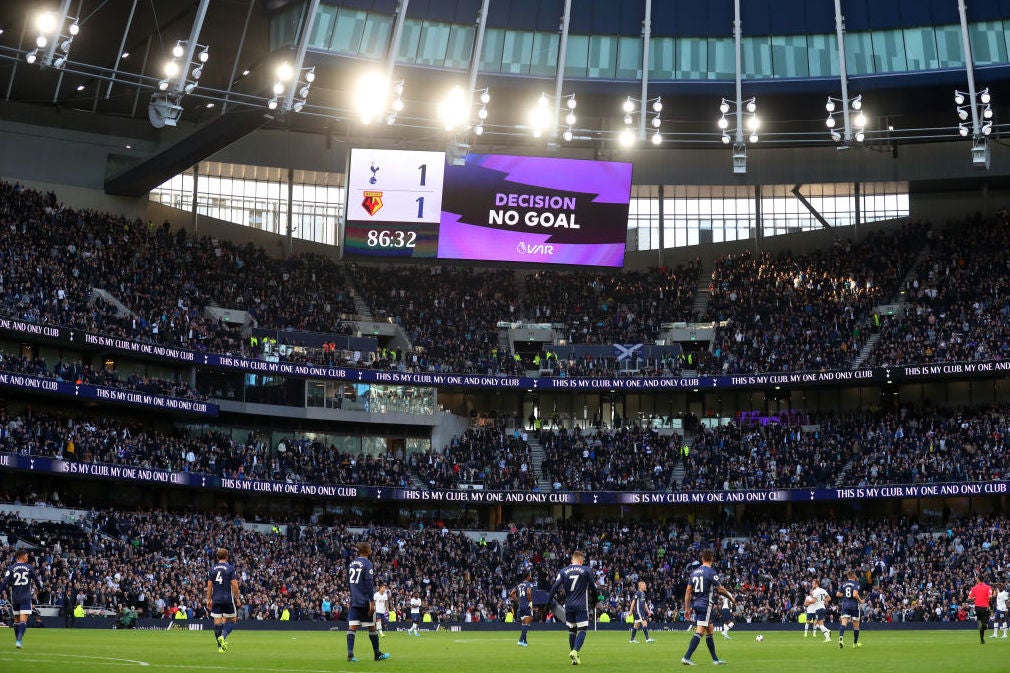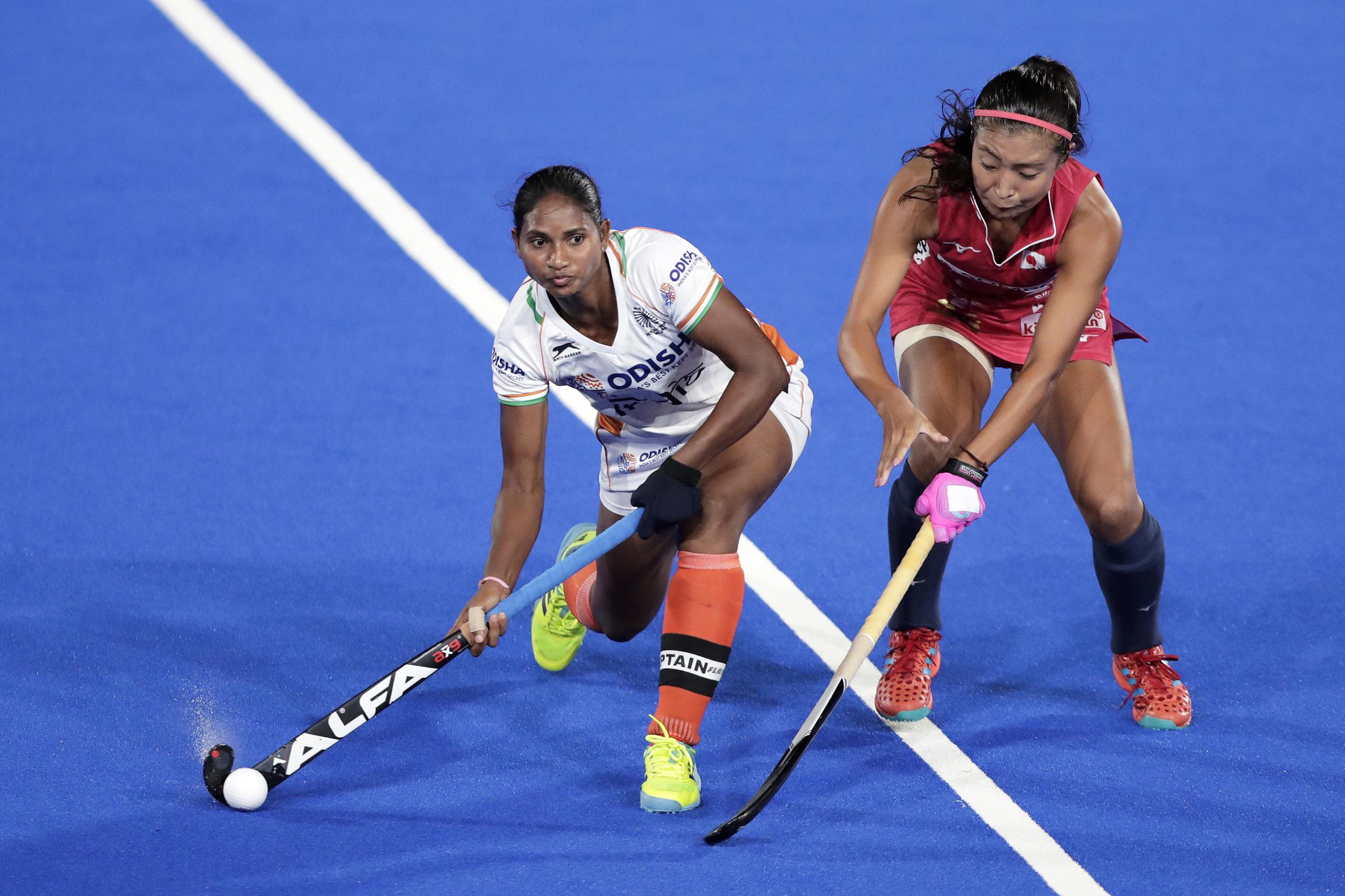Games without frontiers: what can we expect from the world of sport over the next decade?
Machines may be out to destroy the world on the big screen, but sport in the 2020s will face a more human threat to its wellbeing than invasive technology. As ever, it’s all about the money, writes Vithushan Ehantharajah


Whenever throwing forward to how the world might look, movies are greats points of reference. Partly because they’re all quite off.
Sometimes they’re too ambitious, like Back to the Future II and floating skateboards in 2015. An understandable punt in 1989, sure, but the closest we’ve come are those hands-free Segways which require as much skill as brazenness to ride in public. When it comes to the next few years, the original Terminator brings less jovial and more grim tidings.
In James Cameron’s sci-fi epic, the 2020s are when the machines finally took over, laying waste to mankind right the way through to 2029 when Skynet is finally defeated. The initial disaster arose through humans trusting technology too much. But if there is a fear the likes of Google and Alexa are plotting from their deep-rooted positions in society then never fear – sports fans are here.
Has there ever been a group of individuals so sceptical about technological advancements? From VAR to watching matches on streams, as a group whose majority are middle-aged and set in their ways, the rise of the machines in sport, primarily to improve the on- and off-field experiences, has been a stain on their lives. For the more measured, they have been the most striking developments of the last decade and one which will only continue at pace into the next.

Amazon Prime’s dip into Premier League waters goes far beyond any ambitions for football. Their multi-platform, multi-stream service was the first time British sport has been given a treatment many American sports enjoy. All told, the reception was glowing enough to suggest not only a greater presence in the country’s marquee sport going forward but also a nod to other, less established sports who might wonder if something similar could benefit them.
Numbers on YouTube and Facebook videos show how successful non-geo-restricted content can be for sports which already struggle for eyeballs in conventional markets
Because while Amazon will look to enhance its portfolio with other sports, and other subscription applications such as Netflix think about entering the lucrative world of live sports, governing bodies may do as the NFL, NBA and MLB do across the pond and provide their own service. The stumbling block right now is how much certain sports are still reliant on television exposure.
However, the likes of hockey and badminton, with huge followings in Asia, could take the plunge to internationalise their domestic competitions. Numbers on YouTube and Facebook videos show how successful non-geo-restricted content can be for sports that struggle for eyeballs in their conventional home markets.
Expect the globalisation of club sport to continue at pace, too. The tentative steps of rugby league side Toronto Wolfpack playing in England’s Super League may be dwarfed by eventual rubber-stamping of an NFL franchise in London, even with the countless issues to overcome such as tax and travel.

The number of Twenty20 franchise tournaments across the world lends itself it to some cross-pollination. When the Indian Premier League was first dreamt up, the end goal was to have a team from different international cities in competition. International and franchise cricket have been at loggerheads for some time and a bigger, more terminal stand-off feels in the offing, especially given the greater appetite for the shorter formats and its stars. Perhaps, though, the most seismic event in this department will be the formation of football’s mooted European Super League.
Would it be such a surprise to have our first half-a-billion player by 2030? Perhaps not, considering the amount of money that sloshes around football already, but also particularly given where that money is now coming from
Plans were drawn up this summer to reshape the Champions League after 2024 to ensure the top 24 clubs were guaranteed of their place and, importantly, a greater slice of the pie. It was by no means a new plan but one dressed in more official garms.
Yet again, there was widespread condemnation of their greed. But these clubs are only getting stronger and, soon, stopping them will be beyond the capacity of leagues and governing bodies. That, perhaps, is the one trend that will continue exponentially into the 2020s: sport being fenced off for the rich and put further out of reach of the fan.
The last decade saw football’s transfer fees jump seemlessly into nine-figure sums and, as galling as it is to ask, would it be such a surprise to have our first half-a-billion player by 2030? Perhaps not considering the amount of money that sloshes around football already, and where that money is now coming from.

In the last few weeks of this decade Mesut Ozil was verbally reprimanded by Arsenal for condemning China for their continued persecution of Uighur Muslims. The response from the state television channel was to pull coverage of Arsenal’s match with Manchester City and thus hint the $700m deal with the Premier League was under threat. The response from the club – distancing, apologetic, cowering – and the silence of the league itself gave nod to where we are headed.
Even the head of the NBA, Adam Silver, has reported substantial losses already after a team executive’s online comment in support of pro-democracy protestors in Hong Kong. The kind of sums which cannot be made up elsewhere.
And while appeasing cash-rich states who are human-rights poor is no new thing, the practice of sportswashing will take on new forms. Qatar’s hosting of the 2022 World Cup started some difficult conversations but no real action. These regimes are just getting started.
While the silver screen may pitch machines as the biggest threat to civility, but just as in sport, mankind remains the greatest danger to itself especially as it continues to turn a blind eye to the human costs of putting a price on morality.
The next 10 years are unlikely to bring any change for good on that front. Sure, we might get some flashy new add ons, but sport will continue to be a tool for financial and social oppression.
Join our commenting forum
Join thought-provoking conversations, follow other Independent readers and see their replies
Comments